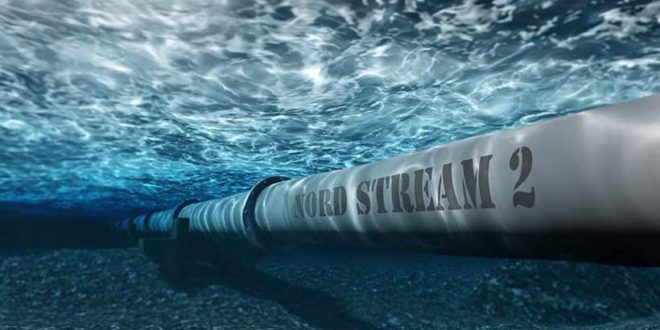In last few weeks the developments related to the politics of transportation of LNG (Liquefied Natural Gas) and Pipeline based natural gas make a reasonable comparison to The 1st Law of Thermodynamics, the scientific law about the conservation of energy, the two orders (LNG vs Pipeline based Natural Gas) in competition are actually the two forms of energy, which cannot be completely eliminated from the world market, especially at a time when a country as big as China have the same appetite for energy as the country as small as Fiji. The world needs both sources of energy, and every country wants to sign up to energy order that is more reliable cheap and without any disruptions or delays. However, the politics almost pitted both energy orders against each other.
The argument used by the United States, against Russian pipeline infrastructure is that, Russians are using energy as a weapon to gain leverage over EU in its energy matters, and this leverage they fear can spill into other areas, the best solution they think for this Russian problem is United States LNG. This debate started in the Obama era, and was vigorously pursued by his administration, to turn European energy needs towards US LNG. However, looking at the major pipeline infrastructure around Europe, and its multilateral outlook, shows that pipeline based order is what Europe needs to meet its mammoth energy needs. The classic argument that United States used to turn Europe away from the new Russian pipeline, Nord Stream II, is that of Ukraine Transit Status, once the new pipeline start operation. Ukraine and Russia were at odds due to intense political wrangling over transit contract issue, Normandy Four talks which took Paris last month put an end to 18 month long negotiation. Russian will continue pumping gas via Ukraine, even after the contract expires on 1 January 2020, and in return Ukraine will withdraw its claim of $12 billions at the Stockholm Arbitration Court.
The new arrangement agreed under Normandy format talks normalizes the gas transit issue between Ukraine and Russia, which means that the argument used by United States to halt Nord Stream is lost its weight, And even if we give credence to this argument, the growing support for Nord Stream 2 in Germany and European Union calls for a direct natural gas link between Germany and Russia. This diversification in supply allows Europe to negotiate from the point of strength. To halt the construction of Nord Stream 2 the US Congress put the PEES Act (Protecting Europe’s Energy Security Act) into the National Defence Authorization Act. The bill to be signed by President Trump soon, which will limit the role of Western Technology, used for laying undersea pipeline, by giving a wind down window for the companies involved in the project. Daniel Freed a Weiser Family Distinguished fellow at the Atlantic Council termed the bill a thoughtful piece of legislation, which targets are narrowly constructed and limited. He criticized the idea of sanctioning the Western firms to put a lid on Nord Stream 2 undersea advance.
The United States vision for the European Energy Security is criticized by the German officials, and the Chancellor Angela Merkel. The waivers in the bill is an open message for the German Government that United States is not imposing any sanctions on German firms, and the draw down opportunity allows Western firms to immediately withdraw their vessels and equipment before the bill goes into effect. This piece of legislation is a one sided effort to roll back the rolled out project which is almost near completion.
Nord Stream remain a contentious issue because of its scope and scale in terms of its security and political aspects, and the future LNG plans of the US for Europe, and thus is the most researched area in energy security domain, there are thousands of rich academic literature op-eds policy papers and news stories generated on the gas pipeline over the course of two decades of its implementation. The United States coercive pursuit to force Germany to drop the project and look for alternative may not be realized, as the officials in both Germany and Russia are keen to inaugurate the Nord Stream 2. If Germany shut the gates for the Nord Stream 2 at their doorsteps, the biggest questions that will haunt the German politicians is, does it really ensure an Energy Security of Germany if they wholly sign up to the US LNG, or end up wholly as an end user of pipelines oozing out from Azerbaijan, Turkey, Italy and Ukraine ?
 Geostrategic Media Political Commentary, Analysis, Security, Defense
Geostrategic Media Political Commentary, Analysis, Security, Defense





